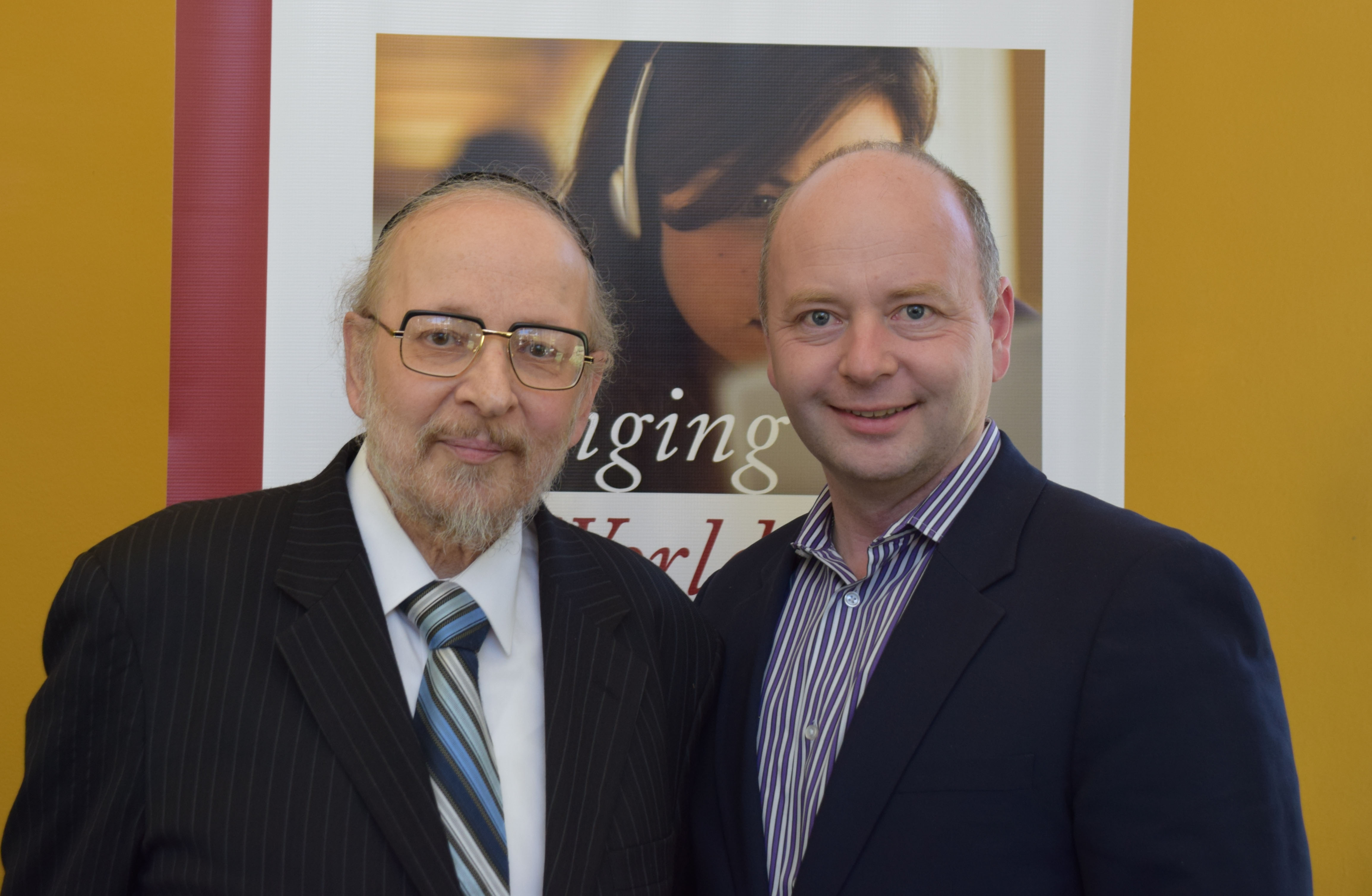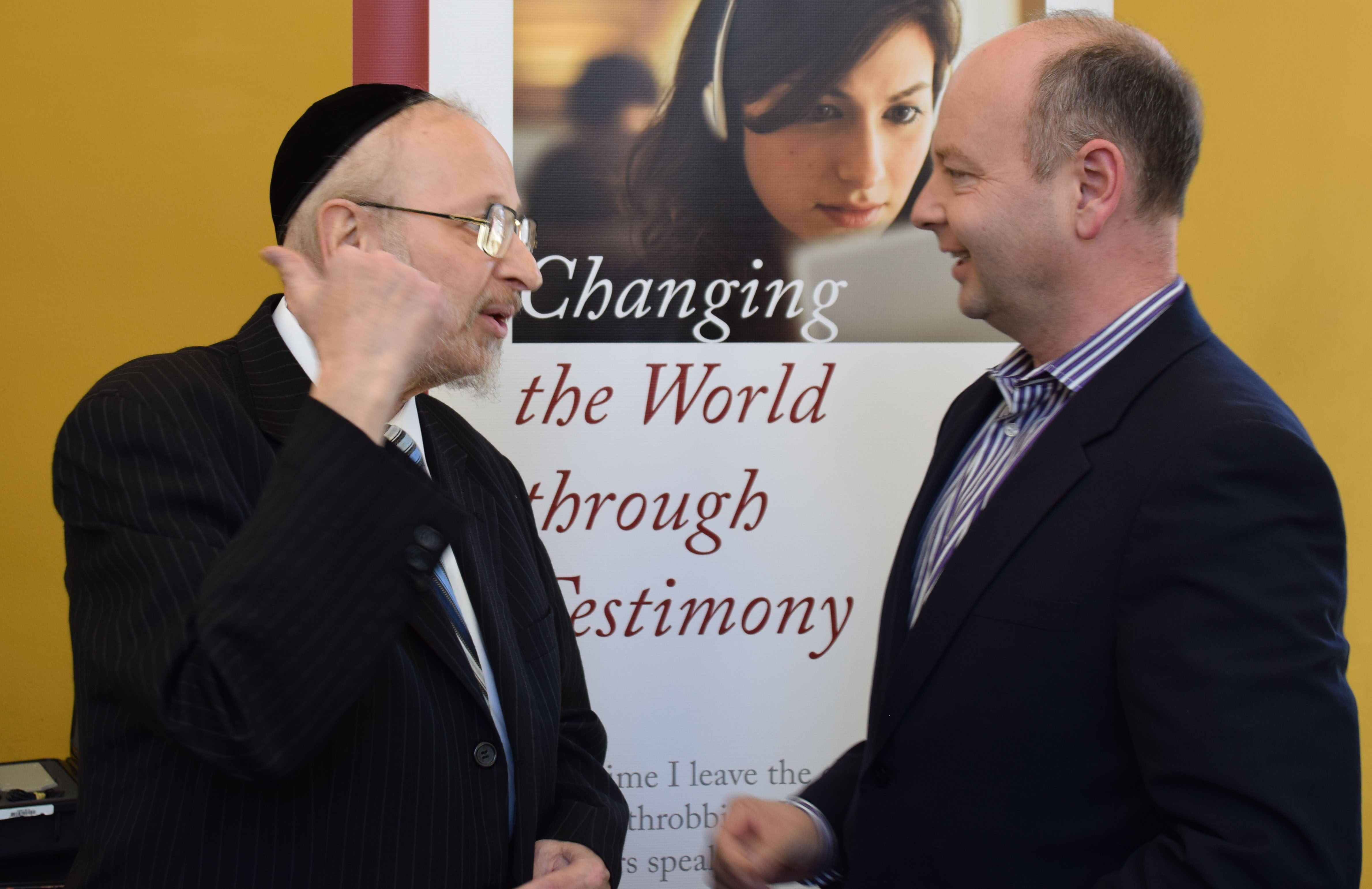Harry Reicher
I have only known Harry Reicher for three months, and yet today I say goodbye to him as an old friend.
I don’t know why, but I wasn’t expecting to meet a devout and practicing Jew the day he first walked into the USC Shoah Foundation office, but Harry’s devotion to his religious life radiated from him the moment he said hello.
We were worlds apart in age, religion and birth countries – Harry was born in Prague and raised in Australia, while I’m from England. But we quickly found so many things in common that our friendship immediately began to blossom.
 Harry Reicher and Stephen Smith at Reicher’s public lecture in July 2014.
Harry Reicher and Stephen Smith at Reicher’s public lecture in July 2014. Within moments, he had brought sports I love and cherish – and admittedly miss a little in the United States – back to life.
I wanted to know more about this energetic man who had stepped into our lives as the Institute’s inaugural Rutman Teaching Fellow, so I went to my computer and Googled his name.
“Bobowa.” That was the word I saw. I would ask him about Bobowa.
Twenty years ago, I was a non-Jew trying to learn about the former Hasidic communities of Galicia. I had been to Bobowa, stood in the wooden synagogue that still stands today. I was excited to meet someone – anyone – who knew of Bobowa, a place that had played such an important role in my understanding of Jewish life and culture.
What I was not ready for was his revelation of Nowy Sacz in southern Poland.
In 1992, I went to Belzec extermination camp and saw the terrible tragedy of 600,000 Jews murdered by the Nazis there. It was clear by the untouched snow on the ground that we had been the only visitors there that day.
As night fell, we arrived in nearby Nowy Sacz and visited the Jewish cemetery where tzaddikim of the Halberstam family dynasty are buried at an ohel. To my surprise, I saw a yahrzeit memorial candle burning in semi-darkness. Someone had been there to remember the rebbe, his words and wisdom. I did not know who had visited, but I knew they had travelled far. I wanted to know who that Hasid was because he was my example. He taught me the power of memory.
There that day I decided just as the Hasid had travelled to remember the rebbe, I would travel, as a non-Jew, every day to remember the victims of the Holocaust who have no one to remember them.
 I told Harry my story.
I told Harry my story.
“In that ohel is my grandfather,” he told me, “and tomorrow I will travel from New York to Krakow to light my yahrzeit candle.”
I didn’t know it, but for years, he had been my guiding light.
In the last three months I have been excited to talk about his work as a law professor, loved to listen to his desire to use testimony from the Visual History Archive in his class, was looking forward to working continuing education together.
Harry Reicher was my mentor for 20 years in absentia and for a fleeting moment he was there, in person.
He will remain my mentor for the rest of my life.